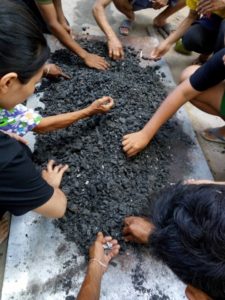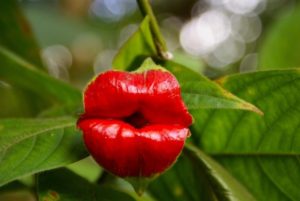 As in the case of European alchemy, Burmese alchemy too includes techniques for the transmutation of base metals into gold. Of much greater importance in Burmese alchemy, however, are the goals of achieving magical power, especially of immortality. These powers are acquired by means of the alchemic stone whose absolute purification and refinement is the aim of all alchemic experiments.
As in the case of European alchemy, Burmese alchemy too includes techniques for the transmutation of base metals into gold. Of much greater importance in Burmese alchemy, however, are the goals of achieving magical power, especially of immortality. These powers are acquired by means of the alchemic stone whose absolute purification and refinement is the aim of all alchemic experiments.
Together with most Asian peoples, the Burmese believe that all matter consists of four elements: earth, air, fire, and water. Although these elements change and decay, Burmese alchemist theory holds that there is an essence underlying them, which is eternal. Burmese alchemic practice is based on premise that if this essence can be extracted from the alchemic metal – in Burma, mercury and iron are the favorite metals – and injected into a human being, he too cam become eternal.
 However, a properly fired alchemic stone may acquire magical power even before the final stage of a perfect stone is achieved. In the first stage of this process, the metal is fired over and over again until it undergoes no further perceptible chemical or physical change. At this point it is believed to possess magical, and especially protective, powers.
However, a properly fired alchemic stone may acquire magical power even before the final stage of a perfect stone is achieved. In the first stage of this process, the metal is fired over and over again until it undergoes no further perceptible chemical or physical change. At this point it is believed to possess magical, and especially protective, powers.
A fully purified stone, not only has power in itself, but confers great power on its possessor. These powers consist of: to fly through the air and through the earth, to make oneself invisible, to pass from one place to another in a moment, and to satisfy all one’s desires almost instantaneously.
Thus far, the alchemic power I have been describing resides in the alchemic stone. However, the ultimate aim of the alchemist is to incorporate this power into his own body so that he himself may possess it. This is achieved when as part of a dangerous and frightening initiation ceremony, he swallows the stone. If the ceremony is successful, the alchemist himself — without the aid of a stone – can, by his own power, fly through the air, become invisible, and so on. Much more important, like the stone itself, he acquires the attribute of eternal life and, more specially, eternal youth. He has become a weikza.
Having become a weikza, the adept no longer remains within human settlements; even the smell, let alone the sight, of human beings is repulsive to him. It is due to human beings are meat-eaters, and he disdains the eating of meat. (In anticipation of their future state, many alchemists become vegetarians.) Hence, weikza generally live on the remote Himalayan slopes. In order to satisfy their sexual appetites, they have intercourse with a type of fruit (“fruit maiden”) which is remarkably similar in appearance to a human female. Being meat-eater, women, of course, are repugnant to weikza.
That the power inherent in an object – or a person – can be incorporated by another is, of course, a very widespread belief: it constitutes one of the motives for cannibalism. The following quotation indicates that until recently [the time of composition of this book,1970] the latter practice was an alternative means in Burma for the acquisition of power which could otherwise be obtained only through alchemy.
The notorious bandit Twet Ngalu had been a monk and a magician and was elaborately tattooed: when he was killed in 1888, nothing would satisfy the nearest Shan chief but to dig up the body and boiled it down into a concoction which he persisted in wanting to share with the English chief commissioner so that they both might become invincible. Burmese and Shan legends are full of stories about eating corpses to obtain magical power such as flying. Similarly in 1907, a Burmese wizard doctor, was convicted for a shocking act of murder and cannibalism. And in 1914, a Burman was tried and convicted for disinterring a corpse in the town cemetery, apparently with the same object.
Source: Quoted from Buddhism and Society, A Great Tradition and Its Burmese Vecissitudes, by: Melford Spiro
